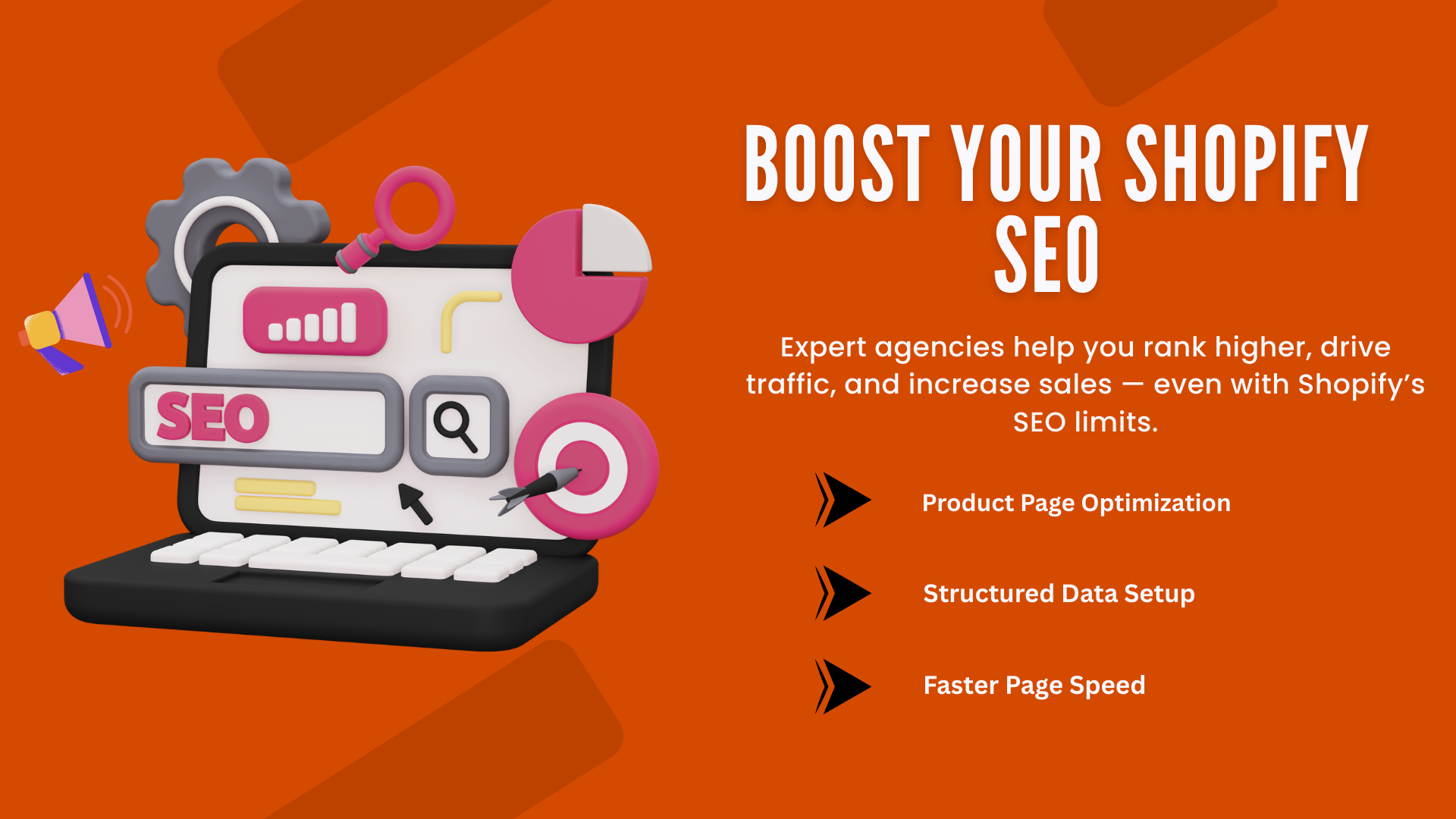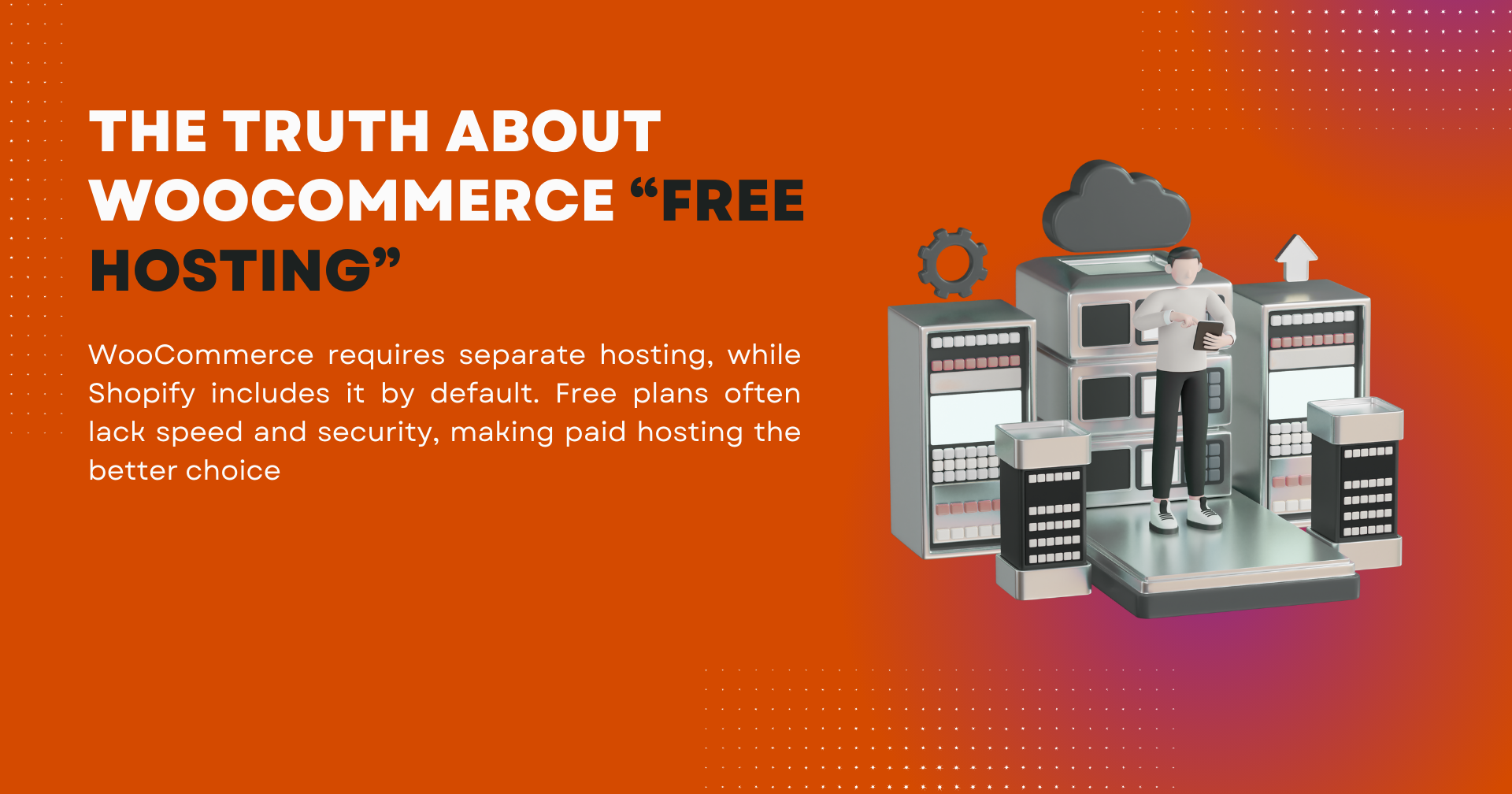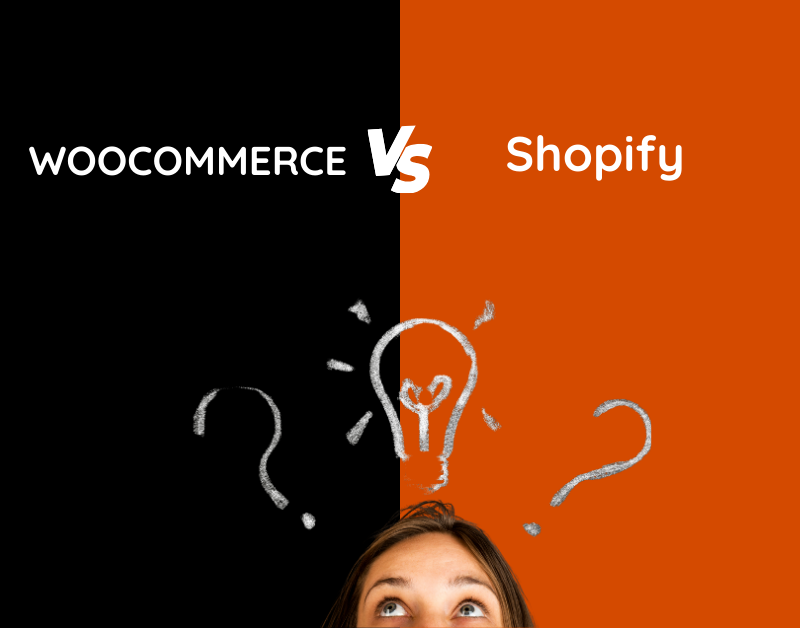Introduction
When planning to start an online business, one of the most critical decisions you will make is selecting the right eCommerce platform. This choice will directly influence how your store looks, functions, and performs in the long run. Among the top platforms dominating the industry are WooCommerce and Shopify.
The debate between WooCommerce and Shopify has become a common discussion among entrepreneurs, developers, and business owners, as both platforms offer powerful features, scalability, and customization options.
However, the way these two platforms operate is vastly different. WooCommerce is an open-source plugin that integrates with WordPress, providing users with a high degree of control and flexibility. Shopify, on the other hand, is a fully hosted eCommerce solution that provides simplicity, convenience, and excellent customer support. Each platform has its strengths and limitations, and understanding these will help you make an informed decision.
In this detailed comparison, we will explore pricing, SEO, apps, themes, hosting, dropshipping capabilities, and customer support for both platforms.
WooCommerce Pricing
Pricing is often the first factor entrepreneurs consider when choosing between WooCommerce vs Shopify. WooCommerce pricing is one of the most attractive aspects for users who prefer flexibility. The core WooCommerce plugin is completely free to use, making it an appealing choice for small businesses and startups that want to minimize initial expenses.
However, the real cost of WooCommerce comes from the additional elements you need to run a fully functional store. This includes purchasing a domain name, which typically costs around $10 to $15 per year, and hosting, which can range anywhere from $5 per month for basic shared hosting to $50 or more for premium managed hosting solutions.
Moreover, you may also need an SSL certificate for secure transactions, though many hosting providers now include this for free. The flexibility of WooCommerce pricing means you only pay for the features and extensions you need, but it also requires careful planning to avoid overspending.
For example, if you want advanced features like subscriptions, booking systems, or premium SEO tools, you will need to invest in paid extensions. While this can make WooCommerce very affordable for those who only need basic features, it can also make it expensive for businesses that require advanced functionality.
Shopify vs WooCommerce Pricing Plans Compared
Shopify takes a different approach by offering clear and predictable pricing plans that include everything you need to start and run an online store. These Shopify pricing plans are divided into three main tiers: Basic Shopify, Shopify, and Advanced Shopify. Each plan includes hosting, SSL, security updates, and essential features, making it a convenient option for business owners who want a hassle-free experience.
The Basic Shopify plan starts at a fixed monthly cost, which is ideal for beginners, while the higher-tier plans cater to growing businesses that need advanced reporting, lower transaction fees, and additional staff accounts.
One key advantage of Shopify pricing plans is that there are no hidden costs for hosting or security, as everything is included in the monthly subscription. However, the cost can increase significantly as you scale your business, especially when you start adding paid apps or premium themes from the Shopify App Store.
Some store owners also pay additional fees for third-party payment gateways unless they use Shopify Payments. Despite the higher long-term costs, many businesses prefer Shopify’s pricing structure because it simplifies budgeting and eliminates the need for technical management of hosting and security.
WooCommerce vs Shopify SEO Services: Which Is Better?
Search engine optimization is a crucial element for driving traffic and increasing sales in an online store. WooCommerce SEO services stand out because of the platform’s inherent flexibility and integration with WordPress, which is widely regarded as the most SEO-friendly content management system available. WooCommerce users can leverage powerful SEO plugins such as Yoast SEO or Rank Math to optimize their stores for search engines.
These tools allow you to control every detail, including meta titles, descriptions, canonical tags, schema markup, and even advanced technical settings like robots.txt and XML sitemaps. This level of control is highly beneficial for businesses that want to implement a customized SEO strategy. However, this flexibility also means you need to have a solid understanding of SEO or hire a professional to manage it for you.
WooCommerce SEO services also make it possible to add custom functionalities like structured data for products, multilingual SEO optimization, and advanced URL structuring. While Shopify offers SEO capabilities as well, WooCommerce remains the preferred choice for those who want full control over their site’s optimization.
Shopify SEO Agency Solutions
Shopify also provides robust SEO features, but when comparing woocommerce vs shopify, its closed ecosystem places some limitations compared to WooCommerce. Store owners can edit meta tags, alt text, and create clean URLs, but advanced technical SEO elements may require additional apps or expert assistance.
This is where a Shopify SEO agency becomes valuable in the woocommerce vs shopify debate. These agencies specialize in optimizing Shopify stores to achieve higher search rankings and improve organic traffic. They handle tasks such as optimizing product pages, implementing structured data, managing redirects, and improving page speed, which is critical for SEO.
Since Shopify does not allow complete server-level access or extensive code customization like WooCommerce, partnering with an experienced Shopify SEO agency ensures you can maximize your site’s potential within the platform’s framework. When weighing woocommerce vs shopify, this additional cost for expert help can be a worthwhile investment to significantly improve your store’s visibility in search engines.

Shopify App Store
One of the major advantages of Shopify is its extensive app marketplace, known as the Shopify App Store. When comparing woocommerce vs shopify, this marketplace stands out because it features thousands of applications designed to extend your store’s functionality without requiring any coding knowledge.
Whether you need email marketing integrations, social media tools, advanced reporting, inventory management, or customer loyalty programs, you can find a suitable app in the Shopify App Store, making it a strong point in the woocommerce vs shopify debate.
This ecosystem makes Shopify highly scalable and beginner-friendly, which is another important consideration in woocommerce vs shopify, because adding new features is as simple as installing an app. However, the downside is that many of these apps require monthly subscriptions, which can quickly add up to a significant expense as your store grows — a factor often discussed in woocommerce vs shopify comparisons.
Businesses that prioritize ease of use and scalability often find the Shopify App Store to be an invaluable resource for enhancing their e-commerce operations, making it a key advantage when evaluating woocommerce vs shopify.
Best WooCommerce Plugins
Just like Shopify has its App Store, WooCommerce offers a massive library of plugins that allow users to add functionality and customize their stores extensively. The best WooCommerce plugins cover everything from payment gateways and shipping calculators to SEO optimization, security enhancements, and advanced reporting tools.
Unlike Shopify apps, many WooCommerce plugins are available for a one-time purchase fee, which can be more cost-effective in the long term. Additionally, the open-source nature of WooCommerce means developers can create custom plugins tailored to specific business needs. However, this flexibility comes with the responsibility of managing compatibility between plugins and ensuring they are updated regularly.
Poorly coded plugins can slow down your site or create security vulnerabilities, so it is essential to choose reliable options from reputable developers. For businesses that value control and customization, the availability of high-quality WooCommerce plugins is a significant advantage.
Best Shopify Themes
The visual appeal of your store plays a crucial role in attracting customers and building trust, which is a key consideration when comparing woocommerce vs shopify. Both platforms offer theme options, but Shopify stands out by providing a wide range of professionally designed themes, available in both free and premium versions, that are optimized specifically for conversions.
When evaluating woocommerce vs shopify, the quality and ease of use of Shopify’s themes often make it a preferred choice for business owners who want a polished look without extensive design work.
The best Shopify themes feature clean, modern layouts that ensure your store looks great on any device, reflecting the platform’s focus on mobile responsiveness—a vital factor in the woocommerce vs shopify comparison. These themes also come with built-in customization options, allowing store owners to easily tailor their site’s appearance without needing to hire a developer or have advanced technical skills.
In contrast, WooCommerce themes often require more hands-on customization, which can be a hurdle for some entrepreneurs when considering woocommerce vs shopify.
Premium Shopify themes typically include advanced features such as customizable product pages, integrated marketing tools, and enhanced navigation systems that help improve the overall shopping experience. When weighing woocommerce vs shopify for theme quality, many business owners find that the support and regular updates included with Shopify’s premium themes provide added value and peace of mind.
While these premium themes can be more costly, they ensure your store remains functional, visually attractive, and up-to-date with the latest design trends and technical standards.
For entrepreneurs focused on design quality, ease of use, and seamless theme integration, Shopify often emerges as the winner in the woocommerce vs shopify debate. Its extensive theme library and user-friendly customization options make it easier to create a professional online store that converts visitors into customers effectively.
Shopify Plans Overview in WooCommerce vs Shopify Context
Shopify plans are designed to accommodate businesses of all sizes. From the Basic Shopify plan for startups to the Advanced Shopify plan for established businesses, each package offers features that align with different growth stages. These plans include hosting, SSL, and essential security measures, removing the burden of technical management from the store owner.
Shopify plans also come with integrated payment solutions, POS systems for brick-and-mortar integration, and access to a vast network of apps and themes. For entrepreneurs who want a platform that handles the technical aspects of e-commerce.
Shopify’s subscription model is a clear advantage. However, businesses that require complete control over every aspect of their store may find the structured nature of Shopify plans limiting compared to WooCommerce.
WooCommerce Free Hosting
Many new store owners mistakenly believe that WooCommerce includes hosting.
WooCommerce is actually a self-hosted solution, meaning you must select and pay for a hosting provider separately.
Some providers offer “WooCommerce free hosting,” but these usually have limited resources and aren’t suitable for professional eCommerce stores.
Reliable hosting is crucial for performance, security, and scalability.
Shopify includes hosting in its subscription plans, making it simpler for beginners.
WooCommerce hosting offers full control over your server environment, which can allow for better performance optimization if managed properly.

Dropshipping Shopify Apps in the WooCommerce vs Shopify Battle
Dropshipping has become a highly popular business model due to its low startup cost and minimal inventory management requirements. Shopify excels in this area with dedicated dropshipping apps that make the process simple and efficient.
Dropshipping Shopify apps like DSers allow store owners to import products directly from suppliers, automate order fulfillment, and manage inventory seamlessly.
These apps integrate smoothly with the Shopify platform, enabling entrepreneurs to launch their dropshipping businesses quickly. The convenience and automation offered by Shopify make it an excellent choice for individuals and businesses that want to start dropshipping without dealing with the complexities of manual order processing.
WooCommerce Dropshipping Features
WooCommerce also supports dropshipping, but it requires additional configuration and plugins. While there are powerful plugins available for WooCommerce dropshipping, such as AliDropship, the setup process is more involved compared to Shopify.
WooCommerce dropshipping offers greater flexibility and control, allowing store owners to choose from a wide range of suppliers and customize their processes. However, this flexibility comes with added complexity, making it more suitable for business owners who are comfortable managing technical tasks or hiring developers to handle the setup.
Shopify Support Compared in WooCommerce vs Shopify
One of Shopify’s most notable advantages is its exceptional customer support, which plays a critical role in helping store owners succeed. Whether you are just starting out or managing a growing business, having reliable assistance available can make all the difference in overcoming challenges quickly and efficiently.
Key features of Shopify’s customer support include:
24/7 Availability: Shopify provides round-the-clock support through multiple channels including live chat, email, and phone. This ensures help is always accessible, no matter the time zone or hour.
Responsive and Knowledgeable Team: Shopify’s support agents are well-trained and equipped with extensive knowledge about the platform, allowing them to address a wide range of technical and operational issues effectively.
User-Friendly Help Center: Beyond direct support, Shopify offers a comprehensive online help center filled with tutorials, guides, FAQs, and troubleshooting articles that empower users to resolve common issues on their own.
Dedicated Support for Beginners: New store owners often face setup and configuration challenges, and Shopify’s support is tailored to assist novices through these initial stages, smoothing the learning curve.
Problem Resolution Efficiency: Shopify’s support team aims for quick turnaround times in resolving problems, minimizing downtime and helping you maintain smooth business operations.
Community Forums and Resources: In addition to official support, Shopify hosts active community forums where users can share experiences, tips, and solutions, providing an extra layer of assistance and peer support.
Continuous Updates and Notifications: Shopify support also includes proactive communication about platform updates, security patches, and new features, keeping store owners informed and prepared.
This comprehensive and accessible support system makes Shopify a trusted choice for entrepreneurs who want reliable help every step of the way, ensuring their online stores run efficiently and grow successfully.
Shopify Customer Support
In addition to its direct support channels such as live chat, email, and phone, Shopify offers a wide range of additional resources designed to help users navigate the platform and resolve issues independently.
The comprehensive Shopify Help Center is a valuable repository of knowledge, featuring detailed articles, step-by-step tutorials, how-to guides, and video demonstrations that cover virtually every aspect of setting up and managing a Shopify store.
Whether you need assistance with setting up payment gateways, customizing your theme, or understanding analytics, the Help Center provides clear and accessible information to guide you through the process.
Alongside this, Shopify offers educational resources that include webinars, blog posts, and courses aimed at both beginners and advanced users. These materials are constantly updated to reflect the latest trends, features, and best practices in e-commerce, helping store owners stay ahead of the competition and make the most of the platform’s capabilities.
Another valuable asset is Shopify’s active and vibrant community forum where users from around the world come together to share experiences, exchange tips, and troubleshoot common problems. This peer-to-peer support network allows merchants to learn from others who have faced similar challenges and discover creative solutions that may not be covered in official documentation.
It also fosters a sense of belonging and collaboration, which can be especially helpful for solo entrepreneurs and small business owners.
This combination of professional support services and extensive self-help resources ensures that Shopify customers have multiple avenues to find assistance tailored to their needs and preferences. Whether you prefer resolving issues on your own time or require immediate help from a support agent, Shopify provides reliable options to keep your store running smoothly.
For businesses that prioritize consistent reliability, fast problem resolution, and comprehensive learning opportunities, Shopify’s customer support infrastructure represents a significant advantage over platforms like WooCommerce, where support may be more fragmented and reliant on third-party providers.

WooCommerce Support Overview
WooCommerce, being an open-source platform, does not offer centralized support like Shopify. Instead, WooCommerce support relies on community forums, extensive documentation, and assistance from hosting providers or third-party developers. While these resources can be helpful, they may not provide immediate solutions, which can be frustrating for beginners.
Many WooCommerce store owners choose to work with agencies or developers to manage technical aspects and ensure their sites run smoothly. While this approach offers flexibility, it also adds to the overall cost and complexity of managing a WooCommerce store.
Conclusion: Final Thoughts on WooCommerce vs Shopify
Deciding between woo commerce vs shopify ultimately depends on your business needs, technical expertise, and budget. When comparing woocommerce vs shopify, WooCommerce is ideal for businesses that want complete control and extensive customization options, giving you the flexibility to build exactly what you envision.
On the other hand, Shopify offers a more streamlined, beginner-friendly solution with excellent customer support and an all-in-one platform that simplifies management.
Both platforms have their strengths and limitations, so when weighing woocommerce vs shopify, it’s important to consider which features and capabilities align best with your goals.
This detailed guide on woocommerce vs shopify has highlighted key differences to help you make an informed choice. Ultimately, by understanding woocommerce vs shopify, you can select the platform that best fits your resources and long-term business vision.


